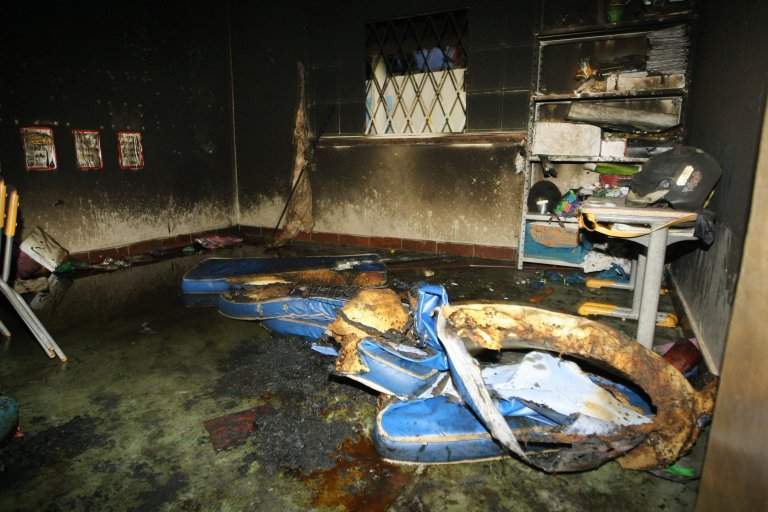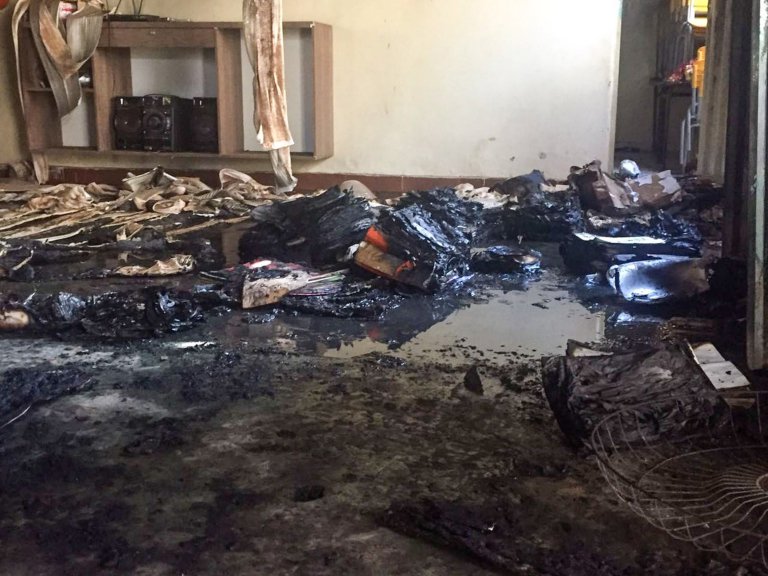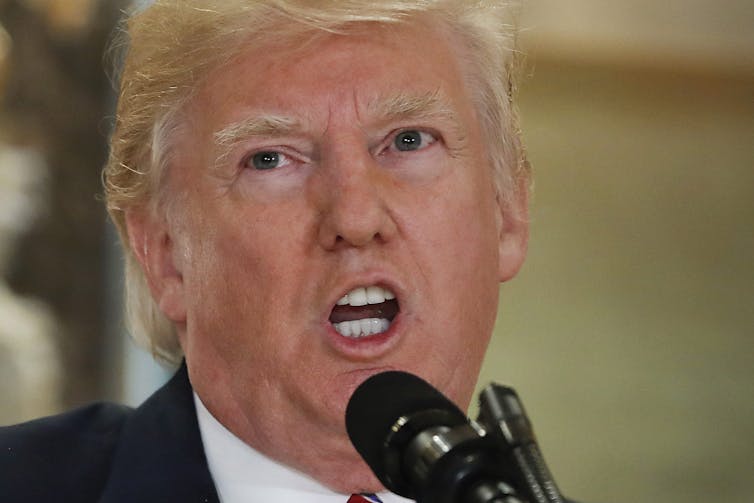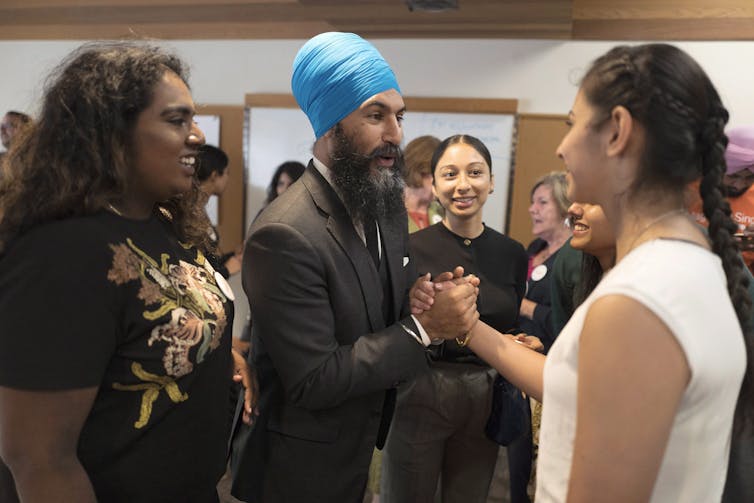
USA & CANADA (901)
Latest News
$3.7m fraud: Nigerian student jailed for four years in US
Friday, 20 October 2017 04:18 Written by Punchng.comA Nigerian student living in the United States, Amechi Amuegbunam, has been sentenced to 46 months in prison for perpetrating fraud to the tune of $3.7m.
Amuegbunam, 30, was also ordered to pay $615, 555.12 in restitution for his role in a sophisticated email phishing scam otherwise known as Business Email Compromise that caused $3.7m loss to US companies.
The convict and other individuals were said to have between November 2013 and August 2015 sent fraudulent emails to companies in the Northern District of Texas and elsewhere containing misrepresentations that caused the companies to wire transfer funds as instructed on a PDF document that was attached to the email.
He was arrested in Baltimore in August 2015 and charged with scamming 17 North Texas companies out of more than $600,000 using the technique.
Amuegbunam was accused of sending emails that looked like forwarded messages from top company executives to employees who had the authority to wire money.
Amuegbunam tricked the employees into wiring him money by transposing a couple of letters in the actual company email, authorities said.
The Dallas investigation began in 2013 when two North Texas companies reported falling victim to the scheme, each losing about $100,000, according to the complaint.
In the case of Luminant Corp., an electric utility company in Dallas, an employee with the authority to wire money received an email from someone who appeared to be a company executive, the complaint said.
But the email domain name had two letters transposed. For example, someone created the email with a domain name of lumniant.com <http://lumniant.com>.
The duped employee wired $98,550 to a bank account outside Texas.
The Federal Bureau of Investigation subpoenaed information about the email account and learned it was created by someone named Colvis Amue, the complaint said.
In another case involving Amuegbunam, a company accountant received an email from her chief executive, who was on vacation outside the country. He asked her to transfer money for a “time-sensitive acquisition” before the day’s end, according to the FBI.
The executive said a lawyer would contact her with more information.
The accountant said such requests were not unusual.
The lawyer sent her an email with her CEO’s signature on a letter of authorisation with the company’s seal that was attached. The email gave her instructions to wire more than $737,000 to a bank in China.
The accountant learned about the scam when the CEO called the next day, saying he knew nothing about the wire transfer request.
The FBI subsequently issued an alert about the new cyber attack it called the “Business Email Compromise.” The FBI said it was a “growing fraud that is more sophisticated than any similar scam the FBI has seen before.”
FBI investigations in conjunction with the Economic and Financial Crimes Commission in Nigeria, led to the arrest of the convict.
Following the conviction of the Nigerian, the FBI commended the EFCC, for its dedication and support in bringing Amuegbunam to justice, the EFCC spokesman, Mr. Wilson Uwujaren, said in a statement.
Inside the Nursery School Where Security Guard Sprayed Children With Alcohol and Burned Them Alive (Photos)
Saturday, 07 October 2017 12:16 Written by tori.ng



'Las Vegas Shooter Usually Screamed at Night, Had Mental Health Issues' - Girlfriend Makes New Revelation
Saturday, 07 October 2017 12:12 Written by oasesnewsSix things to know about mass shootings in America
Thursday, 05 October 2017 01:55 Written by theconversationAmerica has experienced yet another mass shooting, this time at the Mandalay Bay Resort and Casino on the strip in Las Vegas, Nevada. It is reportedly the deadliest mass shooting in U.S. history.
As a criminologist, I have reviewed recent research in hopes of debunking some of the common misconceptions I hear creeping into discussions that spring up whenever a mass shooting occurs. Here’s some recent scholarship about mass shootings that should help you identify misinformation when you hear it.
#1: More guns don’t make you safer
A study I conducted on mass shootings indicated that this phenomenon is not limited to the United States.
Mass shootings also took place in 25 other wealthy nations between 1983 and 2013, but the number of mass shootings in the United States far surpasses that of any other country included in the study during the same period of time.
The U.S. had 78 mass shootings during that 30-year period.
The highest number of mass shootings experienced outside the United States was in Germany – where seven shootings occurred.
In the other 24 industrialized countries taken together, 41 mass shootings took place.
In other words, the U.S. had nearly double the number of mass shootings than all other 24 countries combined in the same 30-year period.
Another significant finding is that mass shootings and gun ownership rates are highly correlated. The higher the gun ownership rate, the more a country is susceptible to experiencing mass shooting incidents. This association remains high even when the number of incidents from the United States is withdrawn from the analysis.
Similar results have been found by [the United Nations Office of Drugs and Crime (http://www.unodc.org/documents/gsh/pdfs/2014_GLOBAL_HOMICIDE_BOOK_web.pdf), which states that countries with higher levels of firearm ownership also have higher firearm homicide rates.
My study also shows a strong correlation between mass shooting casualties and overall death by firearms rates. However, in this last analysis, the relation seems to be mainly driven by the very high number of deaths by firearms in the United States. The relation disappears when the United States is withdrawn from the analysis.
#2: Shootings are more frequent
A recent study published by the Harvard Injury Control Research Center shows that the frequency of mass shooting is increasing over time. The researchers measured the increase by calculating the time between the occurrence of mass shootings. According to the research, the days separating mass shooting occurrence went from on average 200 days during the period of 1983 to 2011 to 64 days since 2011.
What is most alarming with mass shootings is the fact that this increasing trend is moving in the opposite direction of overall intentional homicide rates in the U.S., which decreased by almost 50 percent since 1993 and in Europe where intentional homicides decreased by 40 percent between 2003 and 2013.
#3: Restricting sales works

Due to the Second Amendment, the United States has permissive gun licensing laws. This is in contrast to most developed countries, which have restrictive laws.
According to a seminal work by criminologists George Newton and Franklin Zimring, permissive gun licensing laws refer to a system in which all but specially prohibited groups of persons can purchase a firearm. In such a system, an individual does not have to justify purchasing a weapon; rather, the licensing authority has the burden of proof to deny gun acquisition.
By contrast, restrictive gun licensing laws refer to a system in which individuals who want to purchase firearms must demonstrate to a licensing authority that they have valid reasons to get a gun – like using it on a shooting range or going hunting – and that they demonstrate “good character.”
The type of gun law adopted has important impacts. Countries with more restrictive gun licensing laws show fewer deaths by firearms and a lower gun ownership rate.
#4: Background checks work
In most restrictive background checks performed in developed countries, citizens are required to train for gun handling, obtain a license for hunting or provide proof of membership to a shooting range.
Individuals must prove that they do not belong to any “prohibited group,” such as the mentally ill, criminals, children or those at high risk of committing violent crime, such as individuals with a police record of threatening the life of another.
Here’s the bottom line. With these provisions, most U.S. active shooters would have been denied the purchase of a firearm.
#5: Not all mass shootings are terrorism
Journalists sometimes describe mass shooting as a form of domestic terrorism. This connection may be misleading.
There is no doubt that mass shootings are “terrifying” and “terrorize” the community where they have happened. However, not all active shooters involved in mass shooting have a political message or cause.
For example, the church shooting in Charleston, South Carolina in June 2015 was a hate crime but was not judged by the federal government to be a terrorist act.
The majority of active shooters are linked to mental health issues, bullying and disgruntled employees. Active shooters may be motivated by a variety of personal or political motivations, usually not aimed at weakening government legitimacy. Frequent motivations are revenge or a quest for power.
#6: Historical comparisons may be flawed
Beginning in 2008, the FBI used a narrow definition of mass shootings. They limited mass shootings to incidents where an individual – or in rare circumstances, more than one – “kills four or more people in a single incident (not including the shooter), typically in a single location.”
In 2013, the FBI changed its definition, moving away from “mass shootings” toward identifying an “active shooter” as “an individual actively engaged in killing or attempting to kill people in a confined and populated area.” This change means the agency now includes incidents in which fewer than four people die, but in which several are injured, like this 2014 shooting in New Orleans.
This change in definition impacted directly the number of cases included in studies and affected the comparability of studies conducted before and after 2013.
Some researchers on mass shooting, like Northeastern University criminologist James Alan Fox, have even incorporated in their studies several types of multiple homicides that cannot be defined as mass shooting: for instance, familicide (a form of domestic violence) and gang murders.
In the case of familicide, victims are exclusively family members and not randombystanders.
Gang murders are usually crime for profit or a punishment for rival gangs or a member of the gang who is an informer. Such homicides don’t belong in the analysis of mass shootings.
Editor’s note: this piece was updated on Oct. 2, 2017. It was originally published on Dec. 3, 2015.
Author:Frederic Lemieux: Professor of the Practice and Faculty Director of the Master's in Applied Intelligence, Georgetown University
Credit link: https://theconversation.com/six-things-to-know-about-mass-shootings-in-america-48934<img src="https://counter.theconversation.com/content/48934/count.gif?distributor=republish-lightbox-advanced" alt="The Conversation" width="1" height="1" />
Popular News
Nigerian Hacker Jailed For 51 Months By US Court For $6.5m Fraud
Tuesday, 03 October 2017 22:51 Written by NgyabObinna Obioha, a Nigerian hacker has been jailed for 51 months by a New York federal judge for operating a fraud scheme that swindled $6.5 million from businesses in the U.S. and elsewhere. U.S. District Judge David N. Hurd sentenced Obinna Obioha, 31, for running a scheme in which he instructed hackers to hack into computers and email accounts of individuals around the world using malicious software.
The announcement of Obioha’s sentence was made by Acting United States Attorney Grant C. Jaquith and Vadim D. Thomas, Special Agent in Charge of the Albany Field Office of the Federal Bureau of Investigation. “Obioha, working from Nigeria, was a central figure in a fraud scheme using digital disguises and deceit to bilk businesses out of millions of dollars. We will continue to track down and bring to justice cyber criminals like Obioha no matter where they operate. I thank the FBI for its terrific work in this case identifying and apprehending Obioha,” said Acting United States Attorney Grant C. Jaquith.
FBI Special Agent in Charge Vadim D. Thomas said: “These schemes can rob individuals and businesses of their livelihood. Cyber-crime is a serious threat and the FBI is prepared to go to any lengths to apprehend those like Obioha.” As part of his guilty plea to wire fraud in April 2017, Obioha admitted that, while in Nigeria, he worked with and instructed others to hack into computers and email accounts used by dozens of victims in the United States and around the world. The organization infiltrated victims’ computers and email accounts using malicious software (“malware”). After monitoring victims’ information to identify imminent commercial transactions, Obioha and his associates created knockoff email addresses that appeared similar to – but varied slightly from – victims’ legitimate email addresses. Obioha and his associates used those bogus email accounts to send fraudulent invoices to victims, instructing them to wire funds to bank accounts controlled by Obioha and his associates, under the pretense that the wires were payments for actual deals that had been previously negotiated by the victims. Obioha admitted that between January and September 2016, he was involved in at least 50 wire transfers, and that about $6.5 million was sent by wire to bank accounts that he and his associates controlled. The accounts received money from fraud victims in New York, Florida, Illinois, Ohio, and Texas, among other places.
During today’s sentencing, U.S. District Judge Donald N. Hurd described Obioha as “right in the middle of the action” in “very sophisticated criminal activity” designed to achieve “millions of dollars in illegal funds.” Obioha was arrested on October 6, 2016, after flying from Lagos, Nigeria, to JFK International Airport. He has been in custody since that time.
This case was investigated by the FBI and prosecuted by Assistant U.S. Attorney Wayne A. Myers.
Nigerian Hacker Jailed For 51 Months By US Court For $6.5m Fraud
Tuesday, 03 October 2017 22:51 Written by NgyabObinna Obioha, a Nigerian hacker has been jailed for 51 months by a New York federal judge for operating a fraud scheme that swindled $6.5 million from businesses in the U.S. and elsewhere. U.S. District Judge David N. Hurd sentenced Obinna Obioha, 31, for running a scheme in which he instructed hackers to hack into computers and email accounts of individuals around the world using malicious software.
The announcement of Obioha’s sentence was made by Acting United States Attorney Grant C. Jaquith and Vadim D. Thomas, Special Agent in Charge of the Albany Field Office of the Federal Bureau of Investigation. “Obioha, working from Nigeria, was a central figure in a fraud scheme using digital disguises and deceit to bilk businesses out of millions of dollars. We will continue to track down and bring to justice cyber criminals like Obioha no matter where they operate. I thank the FBI for its terrific work in this case identifying and apprehending Obioha,” said Acting United States Attorney Grant C. Jaquith.
FBI Special Agent in Charge Vadim D. Thomas said: “These schemes can rob individuals and businesses of their livelihood. Cyber-crime is a serious threat and the FBI is prepared to go to any lengths to apprehend those like Obioha.” As part of his guilty plea to wire fraud in April 2017, Obioha admitted that, while in Nigeria, he worked with and instructed others to hack into computers and email accounts used by dozens of victims in the United States and around the world. The organization infiltrated victims’ computers and email accounts using malicious software (“malware”). After monitoring victims’ information to identify imminent commercial transactions, Obioha and his associates created knockoff email addresses that appeared similar to – but varied slightly from – victims’ legitimate email addresses. Obioha and his associates used those bogus email accounts to send fraudulent invoices to victims, instructing them to wire funds to bank accounts controlled by Obioha and his associates, under the pretense that the wires were payments for actual deals that had been previously negotiated by the victims. Obioha admitted that between January and September 2016, he was involved in at least 50 wire transfers, and that about $6.5 million was sent by wire to bank accounts that he and his associates controlled. The accounts received money from fraud victims in New York, Florida, Illinois, Ohio, and Texas, among other places.
During today’s sentencing, U.S. District Judge Donald N. Hurd described Obioha as “right in the middle of the action” in “very sophisticated criminal activity” designed to achieve “millions of dollars in illegal funds.” Obioha was arrested on October 6, 2016, after flying from Lagos, Nigeria, to JFK International Airport. He has been in custody since that time.
This case was investigated by the FBI and prosecuted by Assistant U.S. Attorney Wayne A. Myers.
Jagmeet Singh battles racism in Canadian politics with love
Saturday, 30 September 2017 21:06 Written by theconversationWithin the space of a few moments, Jagmeet Singh became one of Canada’s most admired politicians. His cool-under-pressure reaction to being confronted by an angry heckler is just one of the reasons Singh is considered to be the favourite contender for leadership of the federal New Democratic Party.
A video of the Sept. 6 incident at Singh’s campaign event in Brampton, Ont., went viral and has been viewed millions of times in Canada and around the world. Moments into the event, an angry white woman interrupted Singh and shouted Islamophobic and vitriolic statements at him, and physically gesticulated, demonstrating her feeling of entitlement — to space, voice and position - in relation to others at the event.
Singh seemed undeterred by the outburst. His response to her rant was to rally his audience to help him relay his campaign message. He asked his guests to chant: “Love and courage.”
What is the nature of Singh’s call for love? His political slogan is based on a message of universal love and courage. Singh’s message — and chant that evening — is uniquely situated among the slogans of the three other candidates: Charlie Angus “Got your back,” Niki Ashton “Building a movement, together,” and Guy Caron, “Let’s Build a Progressive and Sustainable Economy.”
The dramatic events at the Sept. 6 meeting demonstrates something about Singh, as a person and as a candidate. It also points to new undercurrents of religion and spirituality and its role — not only in Canadian politics, but also in the leadership race for the NDP.
Singh’s campaign and potential leadership arrives in a climate of increasing hatred, fear and division. His call for universal love is coherent with Sikhism, which challenges the division between daily life and a devotional love that guides all thought and action. How does the language of love and courage relate to a New Democratic Party trying to find its way in a shifting political landscape?
Singh’s outward appearance solicits questions from some Canadians — as in the case of the heckler — regarding his secular position: To what degree does Singh’s religion relate to his policy ideas or conduct?
Canada: Judeo-Christian values?
Canadian political institutions and traditions are imbued with Judeo-Christian values and symbols. Yet the separation of church and state maintains religion does not dictate the making of policy and law. However, in the game of politics, courting ethno-racial, national and religious identified voters has become a central art of party campaign strategists.
Political parties of all persuasions have had to navigate this division in a variety of ways. In Canada, the left social democratic tradition, represented now by the NDP, has had less experience with faith-based movements and the religious identity of its leaders than their right-wing counterparts and left-leaning parties elsewhere in the world. Singh’s leadership challenge will likely change that.
While Singh is positioned as a secular politician, his ethos, sense of justice and formation of his identity is connected to a Sikh practice. The very essence of the message of universal love and courage is embedded in a Sikh devotion, rather than a secular idea of loving all humankind. Practising Sikhism defines a way of life — one that is contemplative, meditative and committed to spiritualism and positive actions.
The Clash of Civilizations
To understand the contemporary role of religion in politics, we need to look at one of our turning points: 9/11. The attacks on New York City and the Pentagon served as a marker of the time foreign and domestic policy in North America was called upon to name Islamic terrorism as a universal enemy.
Once North America and other western governments embraced the rhetoric of a civilization divide, the psyche of liberal democratic nations split apart. The already tenuous divide between the religious and secular began to rupture further.
This reinforced a binary division and emboldened a powerful discourse of racism and Islamophobia. The basic premise is that Islam represents something universally distinct from Christian belief systems.
This discourse of racism and difference has gained strength and societal control through the election of conservative governments with moral platforms that build on fears and anxieties of susceptible citizens.
Sixteen years of corrosive discourses since 9/11 has led to: Us vs. Them, the Clash of Civilizations and racism. We are now at the point of the normalization of white supremacy. It is no longer an oddity or a left-wing conspiracy theory to discuss the presence of fascism and neo-Nazis — these are events widely circulated in our social media feeds and featured during the evening news.

Religious discrimination in Canada
Islamophobia and racism are often understood to be twinned structures of oppression. In many ways they are, but there are complex differences between them. They disseminate and exist in different political, cultural and social taxonomies.
Islamophobia operates through systems of stereotypes, often misunderstanding or misrepresenting the traditions, religious practices and customs of highly diverse ethno-national and racial communities. Islamophobia has been manufactured in multiple ways in society through popular culture, media, policy and criminalizing targeting Islam and Muslims.
Racism is a larger systemic operation of power denigrating one race while validating or elevating another.
When the Harper Conservatives were in government, they attempted to map onto Canadian national values a form of social conservatism. This was articulated through a distinction between Canada and the “barbaric cultural practices” of others.
The clear lines that were being drawn between what Harper referred to as “old stock Canadians” during a 2015 federal leaders’ debate brought into discourse front and center the relationship between white supremacy and Islamophobia. It connected the dots between a normative white Christian Canadian identity that could stand against the racialized others.
Now the Conservative Party has a leader who proudly accepts the label: “Harper with a Smile.”“ Andrew Scheer has the support of social conservatives in the Conservative Party. He has steadfastly supported free speech over the condemnation of Islamophobia and was absent during the House of Commons vote for the Anti-Islamophobia Motion M-103, overwhelmingly passed in the House of Commons.

When losing your cool is not an option
Singh said his ability to remain cool under pressure was largely owed to his experience of being a brown, Sikh and turbaned man, growing up in the 1980s in Brampton, Ont., just northwest of Toronto.
His past experiences of religious and racist intolerance helped to fortify him against racist language and assault.

In the moment in which the racist woman yelled at him, she assumed he was a Muslim. Many wondered why Singh did not attempt to correct her misconceived perception; he is not a Muslim, but rather, a Sikh.
Suggesting such a distinction in the moment, he said, would only further the misunderstanding that somehow being Muslim means such treatment is considered justifiable. His reaction, he said, should not be to proclaim his religion. By not correcting this misconception, Singh was acting in solidarity against Islamophobia.
Sikhs have been affected throughout the post-9/11 discourses of Islamophobia, mainly because of this misunderstood identity. In the U.S., and elsewhere, there has been a rise in hate bias attacks against Sikhs, with the 2012 Oak Creek, Wis., shooting as a visible example.
While there are those who, in the similar vein as Singh, have sought to challenge Islamophobia by standing in solidarity, there have also been many instances where Sikhs in America, the U.K. and Canada painstakingly distinguish themselves from Muslims.
However, in countless examples, when Islamophobia is experienced in the public sphere against properly identified Muslims, there has been a lack of outcry.
In Canada, the shooting deaths in Quebec’s Sainte-Foy’s Mosque, in which Azzedine Soufiane, Khaled Belkacemi, Aboubakar Thabthi, Abdelkrim Hassane, Mamadou Tanou Barry, and Ibrahim Barry were killed, was unmistakably an act of terrorism. Canadians across the country mourned this tragedy. And yet was it recognized as an act of terrorism against the citizens of this state?
The day-to-day effects of Islamophobia have led to many Muslims living with heightened experiences of fear and not knowing what they might encounter on a walk to school, a day at work or even waiting for a bus.
The left social-democrats of the NDP hold steadfastly to their conception of justice, fairness and equality in a secular world. The ways in which people are encountering the public today, however, is seemingly much murkier than these stark divisions.
The issues of racism, religious intolerance and social justice are not central issues for any federal political party. These issues, however, should no longer be viewed as separate from major policy platforms including health, welfare reform, employment, national defense, national security, aboriginal relations and education. Perhaps a political leader such as Jagmeet Singh will be able to navigate these debates with an alacrity and style we have yet to witness in the Canadian political world.
Author: Davina Bhandar :Adjunct Professor in School of Communication and Department of Gender, Sexuality and Women's Studies, Simon Fraser University
Credit link:https://theconversation.com/jagmeet-singh-battles-racism-in-canadian-politics-with-love-83857<imgsrc="https://counter.theconversation.com/content/83857/count.gif?distributor=republish-lightbox-advanced" alt="The Conversation" width="1" height="1" />
Launch of CISLAC Global Office in US
Monday, 25 September 2017 01:19 Written by oasesnewsOur Vision: “A Nigeria in which citizens are participating in governance; the government is safeguarding the rights and welfare of the people; and non-state actors are providing space for citizens to demand accountability”
The Communique Issued at the Launch of CISLAC Global Office in US and Launch of the SDG 16 Shadow report at the UN General Assembly 72 Session, organized by the Civil Society Legislative Advocacy Centre, on 22nd. September 2017 in Helmsley Building New York.
Preamble:
The Civil Society Legislative Advocacy Centre (CISLAC) has been registered in the US as a 501(c) 3, and has officially launched its global office on the 22nd of September, 2017. This coincided with the UN World Peace Day and the launch of its Shadow Report on SDG 16. The launch was attended by His Excellency, the Permanent Representative of Nigeria to the UN, Prof. Tijani Muhammed-Bande, and his deputy, HE Mr. Sunday Itebode, House Committee Chair on Poverty Alleviation and member of the SDGs Committee, Hon. Muhammad Ali Wudil, Mr. Hilary Ogbonna the Africa and Middle East Coordinator of the UN SDGs, Ms. Hauwa Umar- United Nations Environment Program, New York, CISLAC Global Trustee Members - Dr. Afia Zakiya and, Mr. Francis John, Mr. Seing Falu Njie - UN Coordinator National think Tank, as well as other development partners, civil society organizations and media within and outside the United States.
During his opening remarks, the Executive Director of CISLAC, Mallam Auwal Ibrahim Musa, welcomed all participants and noted the significance that the launch of CISLAC global office coincides with the UN General Assembly 72 and the International Day for Peace. He recognized that Nigeria is plunged into a critical period where the country is threatened by ethnic and socio-cultural turbulence, he observed that the civil society has the mandate to advocate for peace, fairness and social justice as this will bring the much-needed development. He further intimated that sharing the Shadow Report is to key to inform the current anti-corruption efforts of the present government and entrench sustainable development. He further urged on the civil society and all other stakeholders to lend their voices to the clarion call on peace and stability and eschew corruption.
In his welcome address, the Permanent Representative to Nigeria in the UN, Prof. Tijani Muhammed-Bande, commended CISLAC on her giant strides and efforts at strengthening the work she does. He observed that corruption is the bane of underdevelopment and social unrest in the country. He said that corruption is the worst epidemic among religious, ethnic and socio-cultural factors affecting the country’s development. He remarked that Nigeria has been plunged into conflict for the past three years and said that there cannot be peace if there is injustice. He further observed that Nigeria has had a string of leaders without transparency, and that paradoxically, where there has been strong leadership, everything revolves around the leader but not around creating strong institutions. Yet, he opined that strong institutions should be everybody’s business. He urged Nigerians to launder their image abroad by highlighting the great achievements made by Nigerians while not losing sight of the challenges.
Our Mission: “To increase the legislature and civil society organizational impact in the legislative process”
L-R: Mr. Francis John (CISLAC Global Office Board Member), Auwal Musa aka Rafsanjani (CISLAC Global Office Board Member), Prof. Tijani Muhhamed-Bande (The Permanent Representative of Nigeria to the UN), Hon. Muhammed Ali Wudil (House Committee Chair on Poverty Alleviation and Member of the SDGs Committee), Dr. Afia Zakiya (CISLAC Global Office Board Member), H.E. Mr. Sunday Itebode (The Deputy Permanent Representative of Nigeria to the UN).
Hon. Muhammed Ali Wudil in his remarks, commended CISLAC’s effort in setting up a global office. He observed that any form of government without a legislature is not a government. He spoke about the government program on social investment which targets the poorest of the poor and urged CISLAC as a foremost civil society group working on legislative advocacy to support the program and further lend its voice to the Poverty Alleviation Bill at the National Assembly. He further urged civil society groups to play their role of being a voice of the people.
Mr. Hilary Ogbonna, during his presentation, expressed satisfaction on the fact that Nigeria is strongly interested in engaging with the SDGs. He stated that the SDG 16 is a development enabler that will propel Nigeria, if implemented, to become the leader in Africa and not just a middle-income country. He feared that this task may be eroded since implementing SDGs is costly. He observed the need for Nigeria to attract technical expertise and also buttressed the point on the pivotal role of the civil society in bridging the gap between the executives and the legislature.
Dr. Afia Zakiya, CISLAC board member, shared in her overview of CISLAC, and the critical rationale for setting up the CISLAC global office. She said that the global office will consolidate CISLAC’s huge experience, knowledge and expertise in implementing regional and global outreach programs and partnerships, strengthen global networking among Africans in the Diaspora, provide a platform to address governance challenges internationally, and increase its regional Africa and global advocacy and partnerships with the UN Missions/Institutions, Development Partners, Diplomatic Community and Relevant Committees in the US Congress. She further stated that the CISLAC has the pre-requisite competence to mobilize the African diaspora and other entities and individuals to leverage their expertise and spheres of influence to the benefit of the African continent.
Our Goal: “To make legislature accessible and responsive to all”
Furthermore, Mr. John Francis in his paper presentation on role of the legislators in revitalizing SDG 16 gave rationale for parliamentary engagements which included their legal mandate as representatives of the electorate and voice of the citizens, their leadership roles in policy formulation, fiduciary powers in appropriation and the legitimacy of the legislative oversight role for the purpose of transparency and accountability and strengthening institutions for good governance at all levels. He further stressed the need for a holistic approach to the SDGs which will enable effective and efficient implementation and sustained development.
In her presentation on the second major purpose of the side event, the launch of the CISLAC SDG 16 Shadow Report, Ms. Chioma Kanu stated that the objective of the SDG 16 Shadow Report was to provide a broad independent assessment of the government led national progress toward the SDGs. She intimated that the SDG 16 Shadow Report focuses on the anti-corruption agenda, specifically focusing on targets 16.4 which is on illicit financial and arms flows, target 16.5 on reducing bribery and other forms of corruption and target 16.10 on access to information. She stated that the report has 19 policy areas and 175 targets. She further observed that although not much has been achieved by the government on SDGs, there is political will to push the process forward in terms of legislative frameworks. She therefore urged the government to strengthen the legal framework by passing into law some enabling pieces of legislation such as the whistle blower protection bill, freedom of information bill and the lobbying policy, and also called for the review of the Companies and Allied Matters Act, CAMA to include beneficial ownership disclosure.
Observations:
i. Absence of clear short, medium or long term national development plan that will harmonize the SDGs at national and sub-national levels;
ii. No clear institutionalized bilateral efforts to curb Illicit financial and arms flows or to recover stolen funds of Africa, specifically Nigeria, domiciled in foreign countries;
iii. The presence of an obnoxious CSO bill sponsored by a member of the National Assembly to scuttle the voice of the people and close the space for civil society to participate in the developmental agenda;
iv. Absence of clear data capturing scuttles monitoring and planning for the SDGs;
v. Absence of a revolving door policy with cooling off periods for public officials securing an appointment in the private sector.
Recommendations for the UN, Nigerian government and CSOs:
UN:
i. Continue to open its door to mainstream Civil Society Organizations in its global development agenda
ii. Nigerian government to borrow a leaf from the UN to create space for Civil Society to continue its engagement for sustainable development
Nigerian Government:
i. Establish a clear plan for short, medium, and long term national development that includes harmonization with the SDGs, 2063 and other relevant African development plans;
ii. African countries, specifically Nigeria to strengthen bilateral relationships and access to information that will ensure all stolen illicit finances in foreign countries are repatriated for sustained development within the African region;
iii. Expedite action on asset recovery by setting up a special integrity trust fund to be monitored by the Civil Society to ensure repatriated funds are duly channeled to sustainable development efforts;
iv. Strengthen existing policies and laws regulating the revolving door policy to include cooling off periods for public servants’ transition to the private sector.
CISLAC/Civil Society:
i. Continue to build national, regional and global presence and tap into the Nigerian and broader African Diaspora technical expertise for contributions to Nigeria’s stride for governance/legislative excellence and sustainable development that ends poverty, injustice and inequality;
ii. Discontinuation of Civil Society bill, at the National Assembly that poses no good intent for the development of citizens and further robs the country of inclusively in governance;
iii. Ensure advocacy efforts are built on strong data integrity principles, are grounded in the voices of the poor, and clarify the linkages between local, national, regional, and global factors that shape socio-economic, political and other aspects of sustainable;
iv. Strengthen CISLAC’s institutional development through a sound strategic plan and funding that include a strong African based philanthropic focus.
In conclusion, Participants applauded the giant strides of CISLAC and encouraged CISLAC to stand tall as a leading non-governmental organization locally and internationally, in its efforts to improve Nigeria’s legislative processes and relations within the civil society space. They further encouraged CISLAC not to relent in its efforts to represent the local NGOs to mobilize local philanthropic and other appropriate international resources to deeply engage in shadow reporting that will keep citizens informed of national development and SDG progress, and engage the grassroots in wider consultations so as to project the voice of the voiceless. Adding that the Nigerian and other African Diaspora expertise will be a powerful role CISLAC can now play to advance sustainable development and resilient communities at home and abroad.
Sign:
Auwal Ibrahim Musa (Rafsanjani)
Executive Director
CISLAC
Mr. Francis John
CISLAC Global Board of Trustees
Dr. Afia Zakiya
CISLAC Global Board of Trustees





